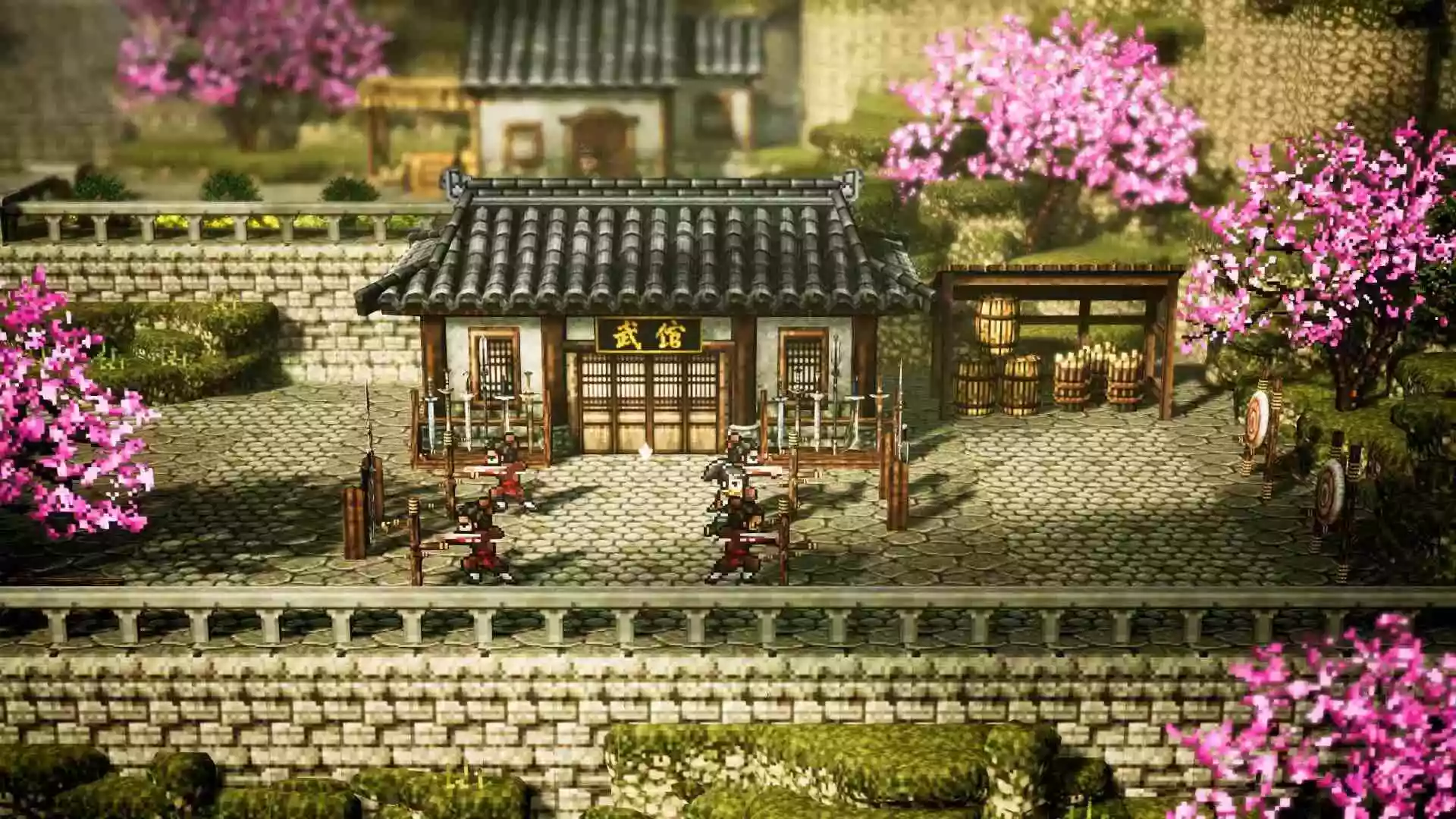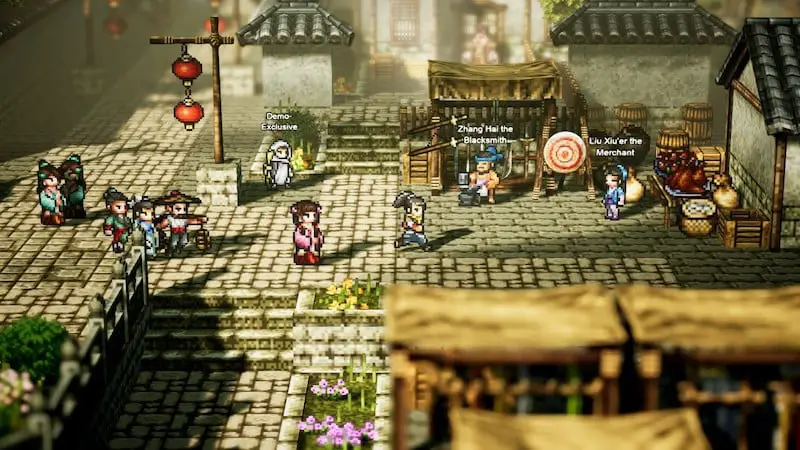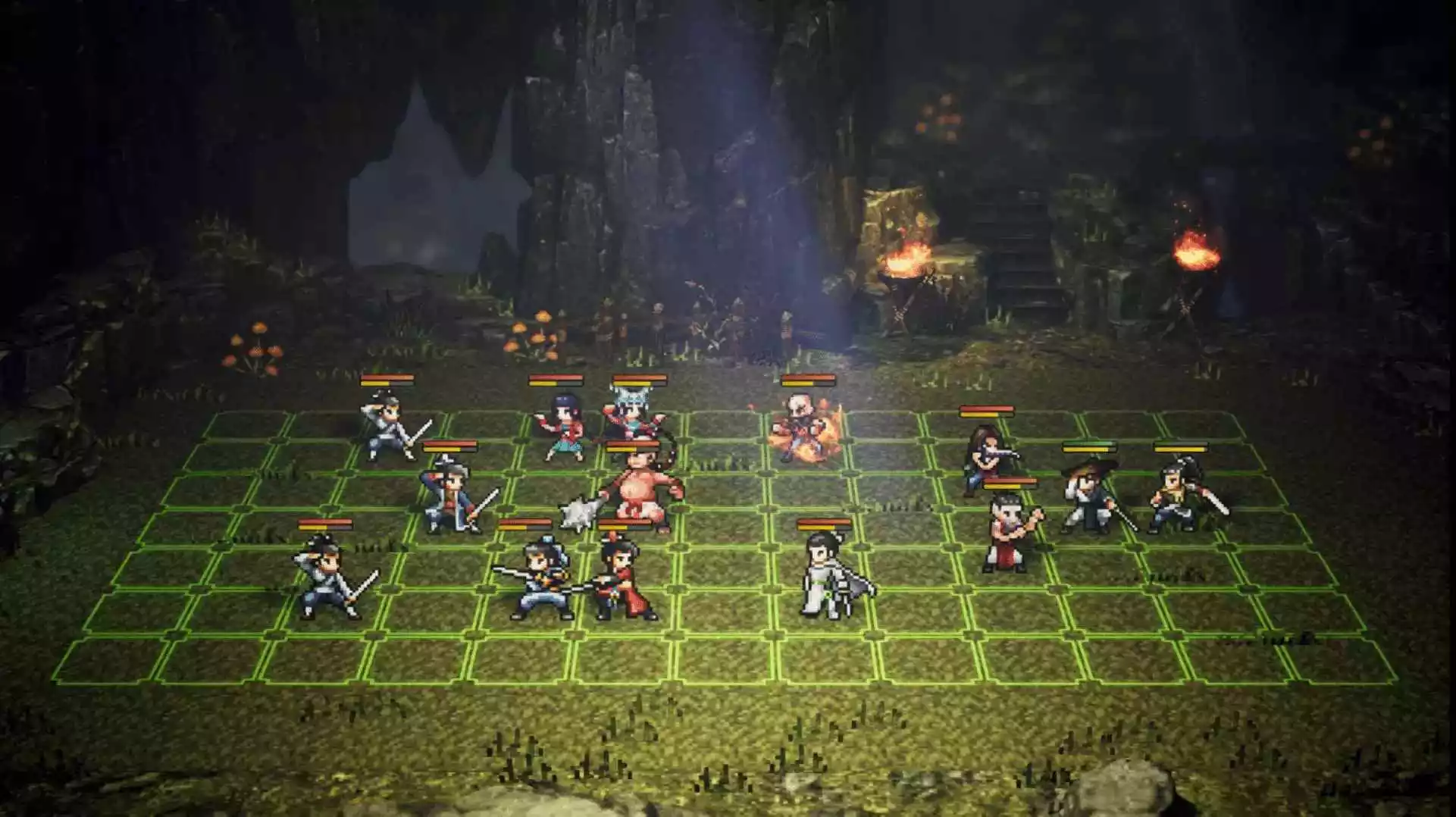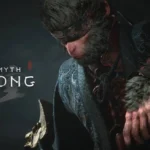Octopath Traveler made a big impact in the gaming world, partly because of its unique HD-2D style. It’s not easy to mix new ideas with old ones, but this game did it well. It’s no wonder it motivated new game creators. An example is the Chinese game by Swordman Studio called Wandering Sword. It looks so much like Octopath Traveler or Live A Live that you might confuse them at first. However, after immersing myself in Wandering Sword, it became apparent that the game possesses unique qualities that set it apart for those who venture into its world. It carves its own identity, offering a distinct experience. That said, it’s crucial to acknowledge that it falls short in terms of some essential polish, leaving room for improvement. Wandering Sword draws inspiration from Octopath Traveler and similar classics, yet manages to establish its own unique presence for those willing to explore it. Nonetheless, there’s undeniable potential for refinement and enhancement that could elevate it to even greater heights.

Wandering Sword: A Complex Tale of Redemption and Challenges
Wandering Sword is set in the turbulent aftermath of the Ning Dynasty, where the rule of the Tianlong Gang has plunged the land into chaos and conflict. In this tumultuous era, the protagonist, Yuwen Yi, is a member of a group that takes on various assignments, such as escorting and safeguarding high-paying clients, to make a living.
During one fateful mission in the treacherous Outer Lands, their team becomes entangled in a battle that has nothing to do with their original task, forcing them to abandon their job permanently. After an unexpectedly massive ambush, Yuwen awakens in an unfamiliar place, afflicted by the Frostvenom ailment. He finds himself under the care of a mysterious stranger, which eventually leads to his recovery. However, this newfound lease on life comes with a heavy burden tied to his savior.
Wandering Sword is a dialogue-heavy game that doesn’t hold back in terms of frequency or the number of characters involved, which can be somewhat daunting for newcomers. There’s a substantial amount of context and exposition introduced initially, and understanding it all may require some patience.
ALSO READ: FAE FARM REVIEW: AN ENCHANTING BLEND OF MAGIC AND ADVENTURE
Fortunately, the translation is passable, allowing players to grasp character motivations and the general plot as long as they pay attention. However, it’s a bit messy. While comprehensible, it becomes apparent that the script could have benefited from another round of editing, as there are several instances of grammar errors and awkward sentence structures. This is more noticeable because of the extensive dialogue throughout the game. While these issues may not severely impact the overall experience, they are undeniably present and slightly detract from the game’s immersion.
Wandering Sword’s Unflinching Narrative and Complex Characters
Wandering Sword fearlessly delves into dark subject matter, fully embracing the grim reality of its historical era. In this world, heartless death is tragically commonplace, stemming from various circumstances, and political turmoil looms large, providing the story with substantial depth, although at times it might feel a bit too dense.

To be honest, I had a mixed experience with much of the narrative. The story sometimes delves into such extensive and seemingly trivial details that it was challenging to maintain investment in every aspect of it.
However, Yuwen Yi, the protagonist, manages to keep the engagement afloat. His endearing naivety and unwavering loyalty serve as a welcome contrast to the mix of one-dimensional and intricate antagonists.
Ultimately, Wandering Sword’s plot is likely to be a hit-or-miss for most players. This is partly due to the somewhat peculiar translation, the gradual pacing, and the sheer number of characters involved. While those who take the time to explore the story deeply may become intensely engrossed, the initial challenge of forming a strong attachment to the narrative can be somewhat off-putting.
Gameplay in Wandering Sword: Tactical Complexity with Unique Controls
In the realm of gameplay, Wandering Sword takes on a tactical turn-based style, where players strategically maneuver their units across a grid while keeping a close eye on their opponents’ movements. While the core mechanics are quite standard for the genre, the method of executing attacks is notably unconventional. Players must use button combinations to trigger their chosen skills, which may require some adjustment. It’s not overly complex, but compared to more traditional games where skills are typically selected from a dropdown menu, this control scheme can take some time to get used to.
Apart from this, the combat system is relatively straightforward, offering players with even moderate tactical gaming experience plenty of room to maneuver, especially if they keep up with the various growth systems. The game features a multitude of miniature skill trees and specialties, depending on your preferred weapon type and fighting style. The level of player freedom in terms of customization is genuinely impressive. This freedom extends to the recruitment of characters, allowing players to craft a team that suits their unique playstyle and preferences.
Wandering Sword: Unique Affinities, Dynamic Combat Modes, and Stunning Presentation
In Wandering Sword, you have the opportunity to build strong connections with several NPCs, and once your affinity with them reaches a certain level, you can recruit them to join you in battles. Even though there’s a limited number of characters you can recruit, each playthrough has the potential to be truly unique, especially when you consider the characters’ upgradeable traits.

However, it’s worth noting that the tactical approach required for some standard enemy encounters might feel unnecessary at times, even in later stages of the game. You may find yourself taking down foes in somewhat drawn-out fashion due to the turn-based setup. This is a matter of personal preference, as some players enjoy longer battles that are more characteristic of the genre than quick encounters.
One particularly intriguing aspect is the ability to switch between real-time and turn-based combat modes during battles. Real-time combat can help alleviate the drawn-out nature of standard fights and expedite the gameplay. It’s generally recommended to use the turn-based mode in newer areas and during boss battles where the challenges are less familiar. The real-time mode works well for common encounters that pose less of a challenge. However, it’s worth noting that there are no battle transition effects, which can be a bit immersion-breaking.
ALSO READ: TRINE 5 A CLOCKWORK CONSPIRACY REVIEW – PUZZLES, PROGRESSION, AND PLAYABILITY
Wandering Sword deserves special mention for its presentation. The game adopts the HD-2D art style popularized by “Octopath Traveler” and executes it impressively. Most areas are visually striking with vibrant colors, detailed assets, and a breathtaking world map. Fans of the HD-2D aesthetic will undoubtedly be impressed by what Wandering Sword achieves in terms of visual design.
Wandering Sword Pros and Cons
| No. | Pros | Cons |
| 1. | Stunning HD-2D Visuals: Wandering Sword captures the beauty of Octopath Traveler’s art style, with vivid colors and impressive world design. | Translation Issues: The game suffers from grammatical errors and awkward sentence structures, affecting the overall narrative. |
| 2. | Deep Customization: The game offers extensive customization options, from character skills to recruiting NPCs, providing a unique experience for each player. | Overwhelming Cast: With numerous characters and intricate plot points, some players may find it challenging to connect with the story. |
| 3. | Real-time and Turn-based Combat: The ability to switch between combat modes adds versatility and keeps battles engaging. | Slow Pacing: The story progression can be slow, and some details may feel drawn out, leading to pacing issues. |
| 4. | Unique Setting: The game explores a dark and politically charged era, offering a different narrative experience. | Lacking Story Grip: Despite the intriguing premise, the narrative may not be consistently gripping or memorable for all players. |
| 5. | Endearing Protagonist: Yuwen Yi’s character adds depth to the story and keeps players engaged. | Limited Appeal: Wandering Sword may not appeal to those who prefer more traditional RPG experiences due to its unique combat mechanics. |
Verdict
Wandering Sword presents players with a mixed experience, utilizing its exceptional visual presentation and extensive player freedom to partially compensate for its lackluster storytelling, translation issues, and dialogue structuring. Regrettably, the game’s strengths aren’t enough to fully elevate it, as I found myself needing to push through certain portions of the game.
While the cast and narrative carry a degree of intrigue, they fail to deliver a truly gripping or memorable experience, resulting in a somewhat arduous journey. However, for those who become engrossed in its gameplay systems, “Wandering Sword” can still provide an addictive and enjoyable experience. It’s a title that may resonate differently with each player, offering both highs and lows along its adventurous path.
FAQs (Frequently Asked Questions)
Is Wandering Sword a direct clone of Octopath Traveler?
While it shares a similar art style, Wandering Sword offers its unique story and gameplay elements, making it distinct.
What platforms can I play Wandering Sword on?
The game is available on PC, and there may be future releases on other platforms.
How’s the translation quality in Wandering Sword?
The translation is passable but has noticeable grammatical errors and awkward sentence pacing at times.
Can I recruit NPCs in the game?
Yes, you can build affinities with NPCs and recruit some of them to join your battles, adding variety to your gameplay.
What’s the combat style in Wandering Sword?
It’s a tactical turn-based combat system with unconventional button combinations for attacks, offering deep customization and real-time options.
Is Wandering Sword’s story engaging?
The story can be hit-or-miss due to translation issues and an overwhelming cast, but some players may find it compelling.






